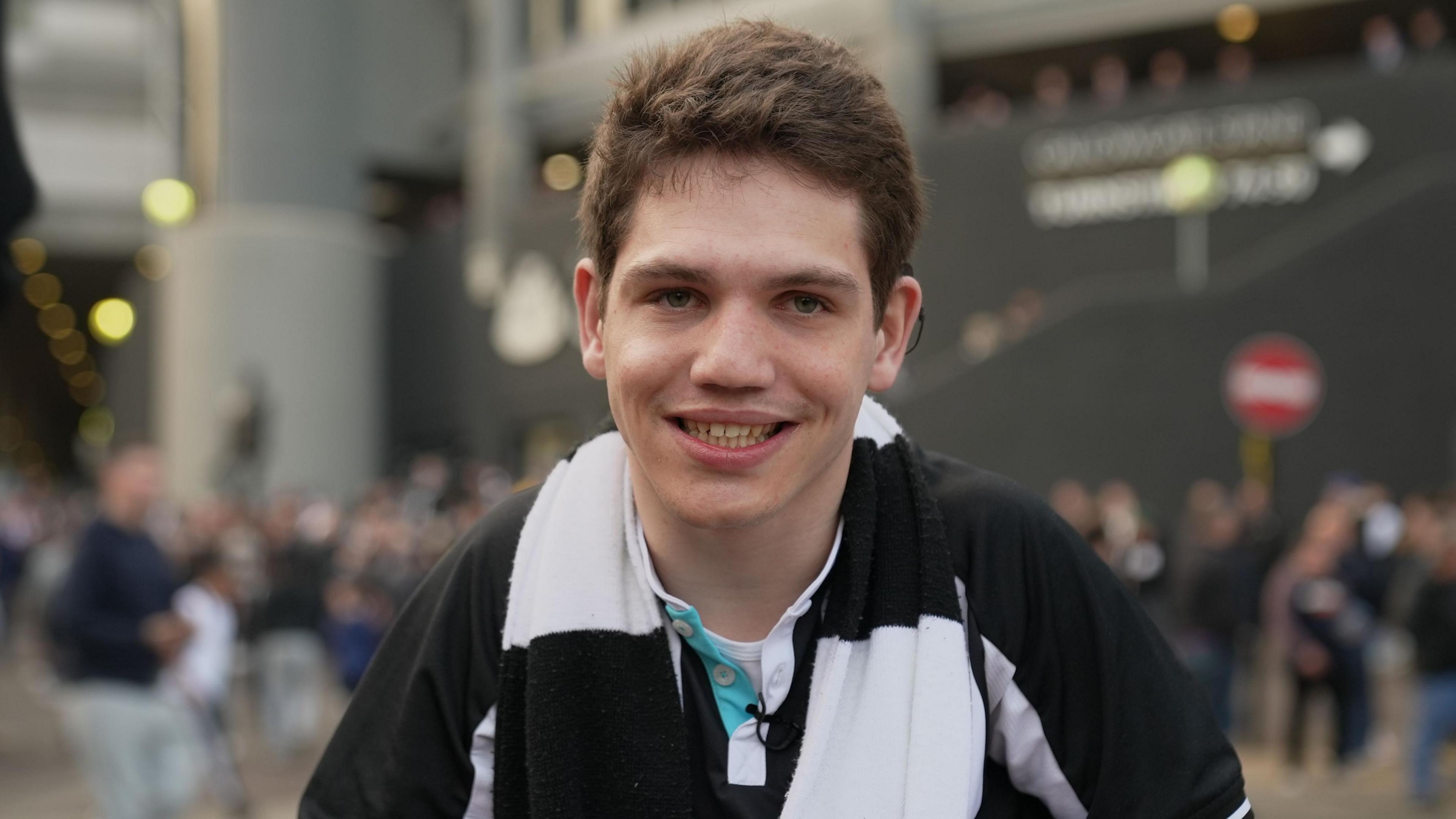'In horse riding I don't have to depend on anyone'
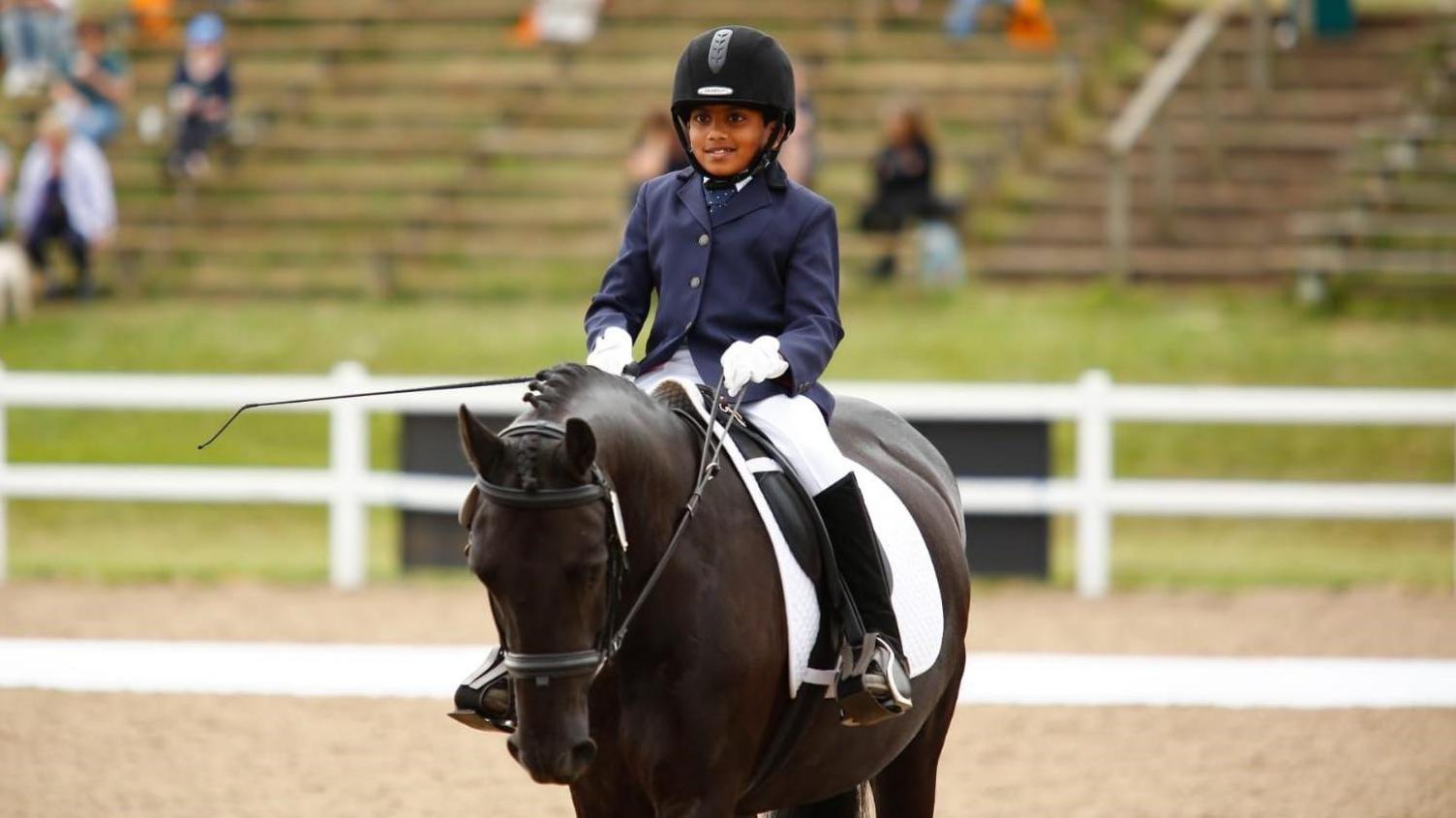
Govind, who has cerebral palsy, hopes to compete in Paralympic dressage events
- Published
Govind, a 16-year-old dressage rider from south-east London, has found independence on the back of a horse.
"I have to rely on a lot of people in my day-to-day life, but in horse riding I don’t have to depend on anyone," he said.
He has cerebral palsy, and began riding on the advice of his doctor, to help strengthen his muscles.
He now has ambitions to take on the world as a Paralympian.
Govind recently became the youngest to compete in this year’s Riding for the Disabled Association (RDA) national championships, and is now on the British Equestrian Federation Paralympic entry programme for dressage.
He has weekly riding lessons at Arrow Riding Centre, a Dartford charity that relies on donations and is run mostly by volunteers.
"It’s quite special because I feel like this place is a safe haven for a lot of people with disabilities like me," said Govind.
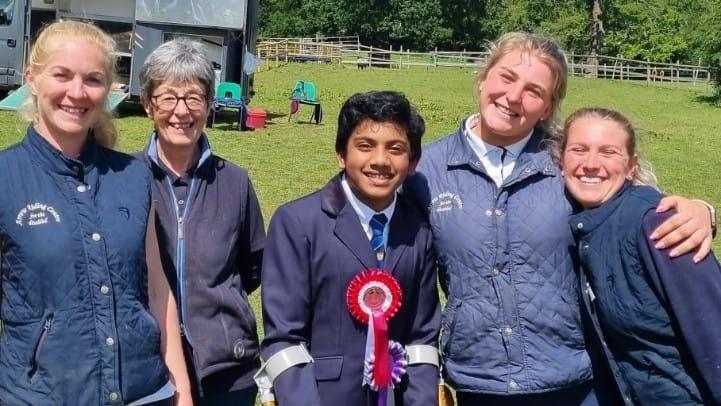
Govind first took up horse riding on the recommendation of his doctor
The centre currently has around 150 disabled riders, 70% of whom are under 21.
Apart from the therapeutic value, the centre aims to boost self-esteem and offers the opportunity to advance to dressage-levels of riding as Govind has done.
"I decided to do a few competitions and from there my career has kind of gone to newer heights," he said.
"It would be a dream for me to get into the Paralympics.
"I think it’s that sense that you’ve achieved what you want to achieve.”
Govind was diagnosed with cerebral palsy, a movement disorder that affects his four limbs, when he was 18 months old.
Since then, he has had multiple orthopaedic operations at Evelina Children's Hospital.
These included lengthening surgeries on his lower limb muscles and more recently to his shinbone to correct alignment and help with riding and walking long term.
Intensive rehabilitation meant he could compete in the RDAs just six months after surgery.
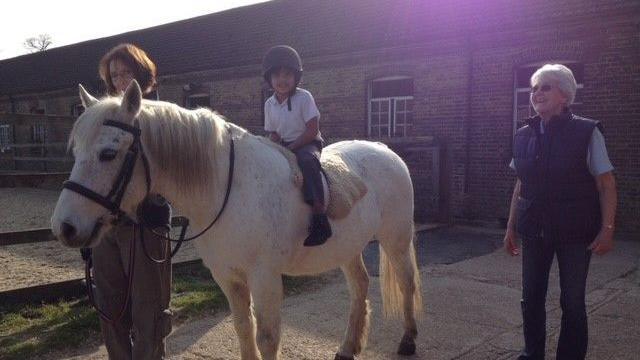
Govind’s mother Kavitha says the riding centre is a place where people can "express themselves"
Valerie Blake, who runs Arrow Riding Centre, described watching riders improve as "magic", but is concerned the centre needs more financial help.
"It provides a future for our riders. But we have to find the money to keep running which is a lot of money," she said.
“Although we receive referrals from physiotherapists and hospitals, consultants and stroke units - we are self-funded with expenses currently running at £165,000 a year. It isn’t easy."
Govind’s mother Kavitha said she is "thankful" for the riding centre.
She said: "This is a place where they express themselves and this is one thing they can do without having to depend on anyone."
And Govind said: "You’re just on top of the world."
Listen to the best of BBC Radio London on Sounds and follow BBC London on Facebook, external, X, external and Instagram, external. Send your story ideas to hello.bbclondon@bbc.co.uk, external
Related topics
- Published27 October 2024
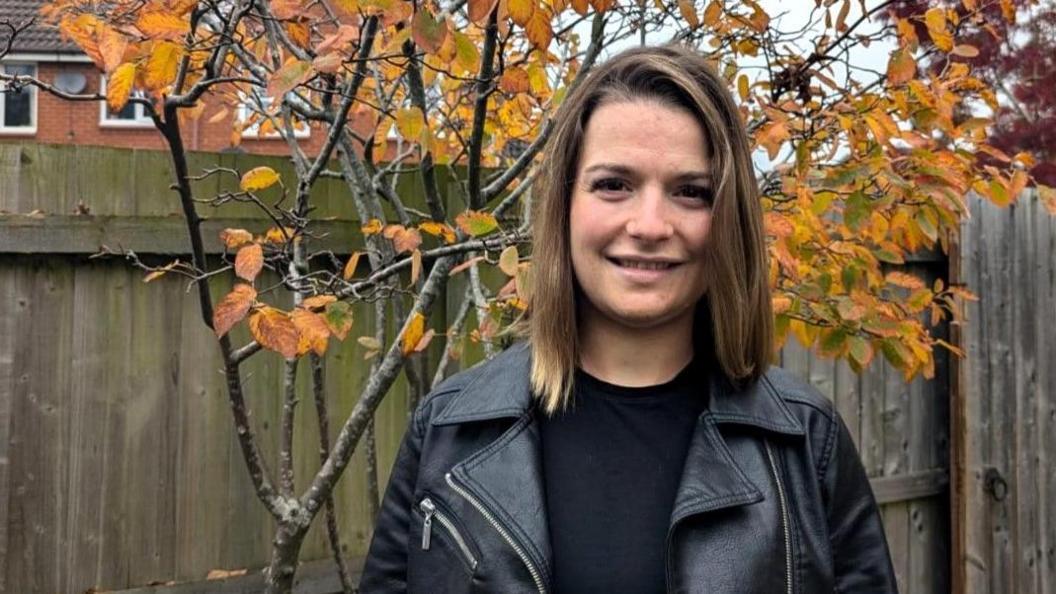
- Published15 October 2024
